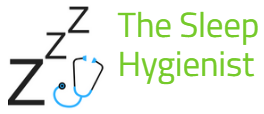
We talk about sleep on this site almost exclusively. I think most people would agree that sleep is important, but a lot of people don't know how sleep actually works. That changes today. Let's jump right in!
The science behind sleep.
Circadian Rhythms (AKA your body clock or internal clock).
First we need to know the term circadian rhythm. If you’ve ever heard the term internal clock or biological clock; that is what is being referred to. Circadian Rhythms don’t only influence sleep, they influence other body functions as well, such as organ functions, and metabolism. However, I’m not going to focus on those other functions, as this is a site about sleep.
Circadian Rhythms are effected by a few different things; mostly the environment around us, but also from stimuli or substances we expose ourselves to. The first, and probably strongest, factor in determining circadian rhythms is sunlight. Temperature, some studies suggest moonlight. Blue light. Stimulants, alcohol.
Melatonin.
Actually, let's back up a little. We need to understand melatonin before we continue. I’m sure you’ve probably heard the word melatonin before. You may even recognize it as an over the counter natural supplement to help with sleep. It actually is a hormone that your body produces on its own. More specifically the pineal gland in your brain produces it.
The amount of melatonin in your system determines if you feel sleepy or awake. When there is more melatonin in your bloodstream, your brain tells you that you are sleepy and your body begins to prepare for sleep. As melatonin decreases in your bloodstream, your body begins the process of waking up. As it probably comes as no surprise, the most melatonin in your body happens (naturally) at nighttime. When we are exposed to light, melatonin production is low or stopped. When it is dark, our pineal gland starts producing more melatonin.
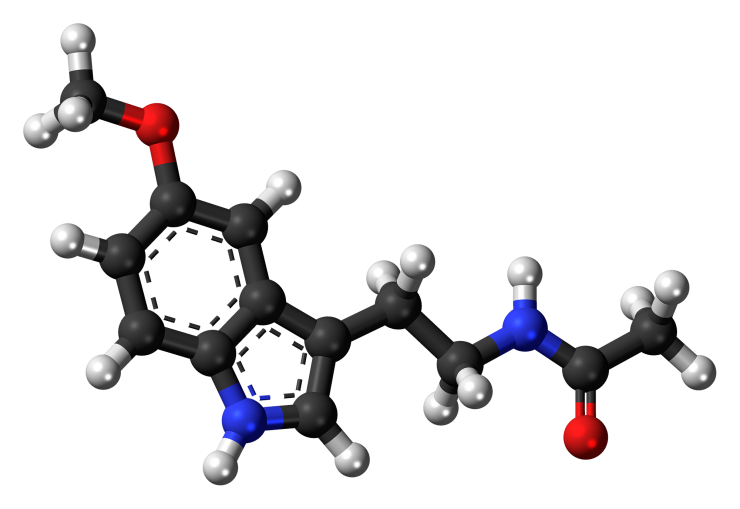
Check out this sexy melatonin molecule.
The pineal gland is not the only part of the brain responsible for sleep though. It is just the factory worker producing what the foreman tells it to. In this illustration, the foreman is the hypothalamus, another part of the brain. When light (or darkness) enters your eyes, it is the hypothalamus that sends the message to the pineal gland, telling it how much melatonin to produce. More light, less melatonin, Less light, more melatonin. This sleep/wake cycle goes back in forth and is known collectively as the circadian rhythm.
Sunlight.
Sunlight is the biggest influencer of circadian rhythms. If you are exposed to sunlight during the day, and avoid artificial light at night, you probably fall asleep very easily. And the definition of sunlight I am using is not specifically, the hot burning sun warming you shoulder. I mean daylight. It could be a gloomy, cloudy, wintry day. But you can see. That’s daylight (technically sunlight). Exposure to this still helps keep your circadian rhythms in sync.

Things that can disrupt our circadian rhythms:
Now that we know how sleep ideally works, let's look at some of the things that normally disrupt our internal clocks.
Temperature.
The body sleeps better at a cooler temperature. If you are too warm at night, this can disrupt your sleep. You may toss and turn, and throw off your covers or have to get off to remove layers of clothing. On hot, sticky summer nights, it is often very hard to sleep comfortably. This disrupts sleep.
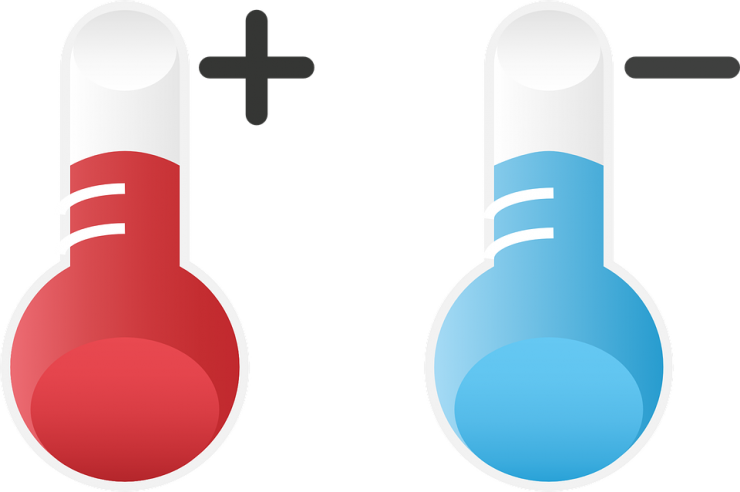
Being too cold also disrupts sleep. While I did just say that the body sleeps better at a cooler temperature, it doesn't at a cold temperature. The sensation of being too cold is unpleasant. Again, you my have to wake in the night to add covers or layers of clothing, or to adjust the heat.
The optimal temperature for sleep should range between 62-72 degrees Fahrenheit. My recommendation is to set the thermostat at 67 and adjust as needed.
Moonlight.
If you were unaware of this, the light that shines from the moon is actually light from the sun reflecting off the moon’s surface. While certainly not as intense as direct sunlight, moonlight affects your sleep negatively. Say you are in bed asleep, and the moonlight is shining through your window. Your body is going to react to this light, even if you don’t notice it. Your brain is going to stop producing melatonin, thus beginning the waking process. I recommend that you get some black-out curtains, or at least some regular curtains, or blinds, etc. Something to block that incoming light.

This sleep/wake cycle goes back in forth and is known collectively as the circadian rhythm.
Blue light exposure.
If I've said it once, I've said it a thousand times: turn off those screens at least an hour before bed. The artificial blue light coming from you smartphone, laptop, tablet, and even TV will trick your brain into thinking it is still daylight, and prevent the production of melatonin.
If you absolutely HAVE to use screens, download a blue light filter app. There is a whole mess of them out there for most all devices. You can either get free or paid versions. The one I like for my Android, in the rare times I actually use my phone in the dark, is sFilter (not an affiliate link, I just like the app). It has the option of a little hovering sun widget that i just tap to turn off the blue light.
But if you can just avoid screens before bed to begin with, you'll be farther ahead.
Shift work.
This one is harder to avoid if your job requires it. I'll be going into much more detail on shift work and sleep soon, but for now, here is what you need to know.
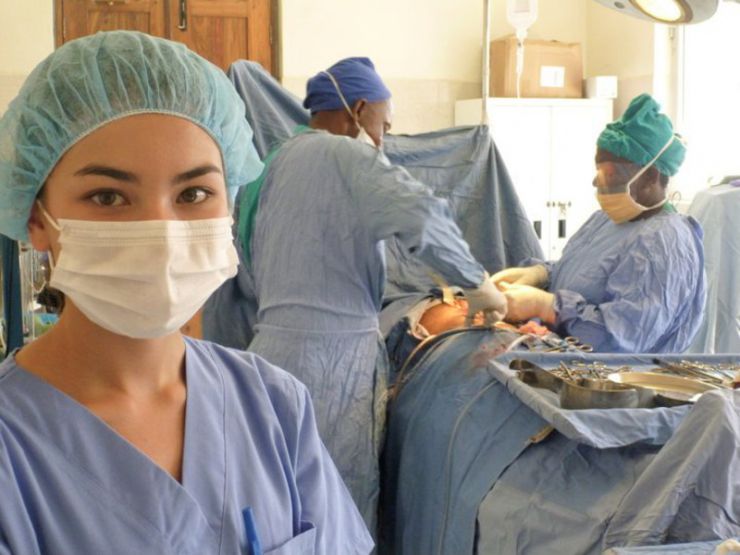
It is unnatural to sleep in the day and be awake all night. Your body will likely protest this on both ends: not wanting to be up so late, and not wanting to sleep during the day. After awhile, shift workers get used to this out-of-preference phenomenon as best they can. Still, there are ways to help shift workers.
Stay awake and alert during work. This can be done several ways, such as caffeine, fruits, routine exercise when not at work, and getting the best sleep you can when you are able to sleep (during the day).
When driving home, wear sunglasses to block out as much of the sun as possible. Remember, sunlight exposure syncs your circadian rhythms with normal wake-sleep patterns. This is counter-productive for shift workers.
When home, block out any noise and light that you possibly can to simulate night as best as possible. Make you room a Sleep Sanctuary.
Don't have time to read the Sleep Sanctuary article right now?
No problem. Download the PDF version for later. All I need is your email.
Jet leg.

This is a tough one, depending on which direction you fly, and how many time-zones you cross. Your body will feel tired in the middle of the day, or wide awake at night, all because your internal clock is still in the original time zone. Some strategies to minimize these effects would be sitting near the window (remember sun exposure? I know you do) and sleeping on the plane if it is a long flight.
Other than that, if you can travel slower (by car), that would minimize or completely avoid jet lag. If it is a sizable distance though, or across an ocean, then you'll have to fight the jet lag as best as possible.
Weekend (or irregular sleep schedule) changes.
Often, people will celebrate the weekend by staying up much later than on the weekend. They may also drink in the evening as well, or eat later. All of these activities are counter-intuitive to good sleep habits. Then, come Monday morning, they are dragging into work. It may take until Wednesday or Thursday before their sleep is caught up from the weekend, and by then, half the week is over.
I am not saying don't enjoy your weekend, or miss out on a good time. What I am saying is to account for the potential sleep loss. If you stay up 4 hours later than normal, make sure you can sleep in 4 hours later. Or at least catch a nap or so the next day.
Keeping the same sleep schedule as during the weekdays will yield the best results, but if you are going to flex your sleep schedule, flex it on both ends.
Resetting our circadian rhythms.
Okay, now that we know about the science of sleep, and what can mess up our sleep, let's talk (I'll type, you read) about solutions to these problems.
Get out in the sunlight.
This will be one of the best things you can do to reset your circadian rhythms. In fact, a screen-free weekend camping trip would almost completely set your internal clock to wear it needs to be. A tent would be the best because the rising and setting sun would be apparent. Cabin or RV camping would be good as long as you are getting lots of outdoor exposure. The trick is to still go to bed when the sun goes down.
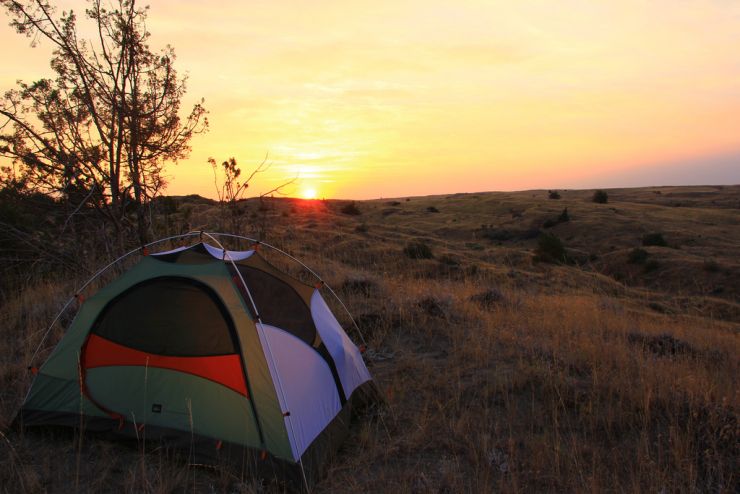
If you aren't able to get away on a camping adventure, at least get out in the sunlight as much as you can. Take a walk, do some yard work, read in a hammock, whatever. Just get out there!
Limit blue light exposure at night.
We covered this pretty well above.
Keep a consistent bedtime.
Having a Bedtime Routine will go a long way in helping you sleep well.
Darken your room.
This works for everybody, particularly for shift workers and full moon nights. I recommend getting black out curtains. They can be pricey, but oh so worth it where your sleep is concerned. Being able to control the light can be key to getting good rest.
Consider taking melatonin.
If you already practice good sleep hygiene in the daytime and while you are in bed, and are still having a hard time falling asleep, consider taking melatonin. You can find it over the counter at any pharmacy. Wal-Mart and most grocery stores sell it as well. Start off with the minimum recommended dosage. The trick is not to become dependent on the stuff to sleep, but too give you an assist every once in a while. Good sleep hygiene practices should be in place first.
So there you have it! All you could ever want to know about how sleep works. Want more from The Sleep Hygienist? Allow me to send you some great stuff in your email. We're talking about articles, opportunities, freebies, and more.
